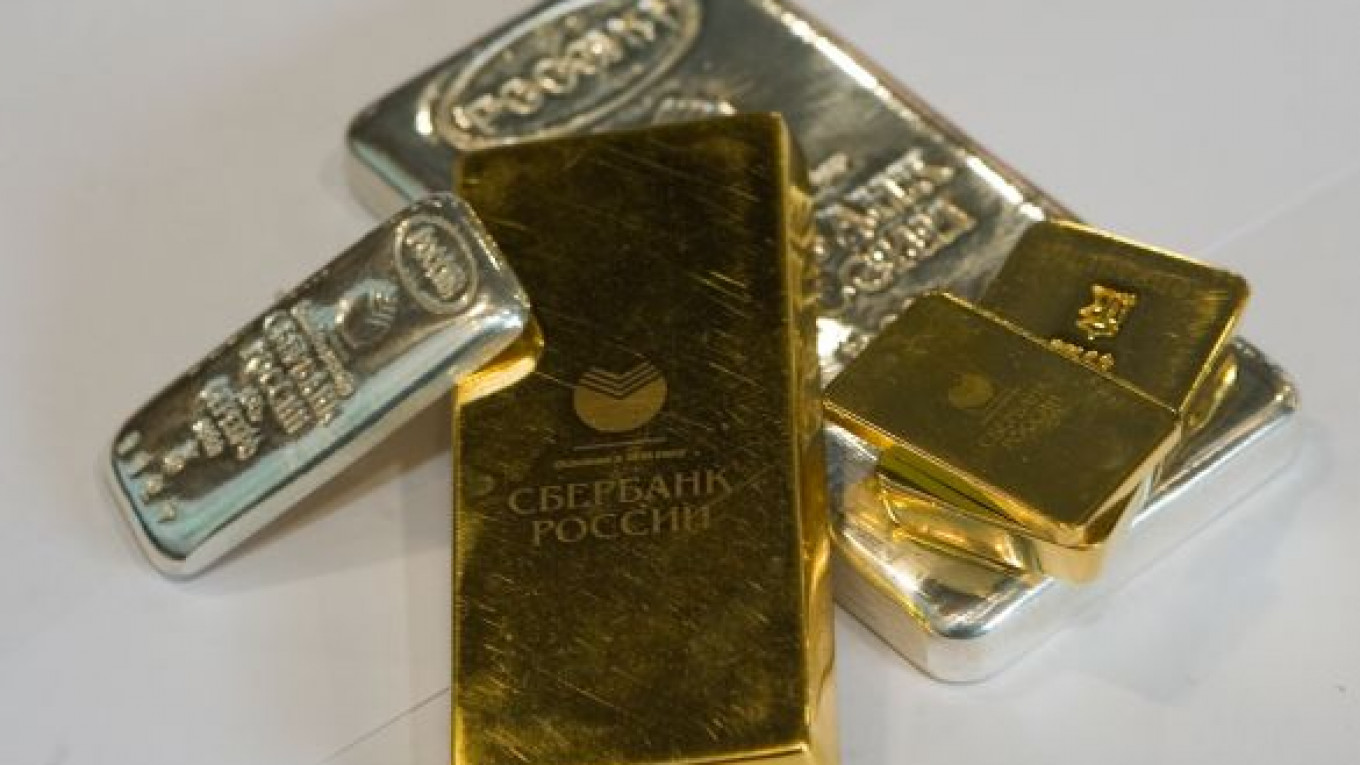Two major traders on Thursday welcomed Sberbank as a new player in financing commodity supplies after the lender announced its plans to get on the list of Europe's largest banks funding Russian exports.
The state-controlled lender said it would provide the new service through its Swiss-based subsidiary, with talks being already underway with a number of potential clients.
"These are primarily traders affiliated with Russian exporters or working with commodity suppliers from Russia and [other former Soviet countries]," Sberbank said in e-mailed comments without providing the names.
Since commodity traders tend to obtain loans themselves to finance deals, the lender expects to see majors like Gunvor, Glencore and Vitol among it clients, head of trade financing and financial institutions at Sberbank Andrei Ivanov told Vedomosti.
Two of them praised the effort Thursday, saying that Sberbank's expansion into the financing of commodities will be beneficial for the sides involved.
"The diversification of banks involved in trade finance benefits the whole industry, and we welcome Sberbank's participation," a spokesman for oil trader Gunvor said in e-mailed comments.
Swiss-based Vitol, which trades in crude, natural gas and coal, echoed the thought, saying that "it is positive to see a respected institution such as Sberbank expanding its services in the area of commodity finance."
At the moment the bank has as many as 20 deals totally worth $300 million in the pipeline, Ivanov told journalists Wednesday.
"Loans have been approved for two deals already. I'm talking about exports of grain, fertilizers and oil products," he said. "It's an absolutely new business for Sberbank," he added.
The lender will finance the entire cycle of commodities exports involving suppliers, traders and consumers, Ivanov said, Vedomosti reported. At the moment, domestic banks provide financing only to exporters, leaving the other parts of the supply chain to other lenders.
Ivanov pointed out that domestic banks account for just $30 billion of total commodity exports by Russian suppliers, worth $500 billion per year.
"We intend to get into the top-3 of European banks in terms of funding provided for Russian exports," he said.
The bank has a good chance to secure a stable position in the business, as the demand for capital drives international lenders to reduce their lending activity, analysts said.
Working through the Swiss subsidiary is beneficial for Sberbank, since Russia's commodity exports go primarily through Swiss-based traders, said Yekaterina Kondrashova, an analyst with Investcafe.
Among other advantages of the lender are good contacts with domestic producers like the world's biggest aluminum maker RusAl or nickel giant Norilsk Nickel, which are already its clients, said Renaissance Capital analyst Boris Krasnozhenov. To achieve a good position in the business of financing commodity supplies, Sberbank should offer beneficial lending conditions like competitive interest rates, he added.
Sberbank pointed out that, while all lenders offer comparable interest rates, its major competitive advantages are good knowledge of the domestic market and long-standing relations with most exporters. In addition to owning subsidiaries in former Soviet countries, Eastern Europe, Switzerland and Turkey, this enables it to provide financial services at all stages of commodities exports, the bank said.
Contact the author at irina.filatova@imedia.ru
A Message from The Moscow Times:
Dear readers,
We are facing unprecedented challenges. Russia's Prosecutor General's Office has designated The Moscow Times as an "undesirable" organization, criminalizing our work and putting our staff at risk of prosecution. This follows our earlier unjust labeling as a "foreign agent."
These actions are direct attempts to silence independent journalism in Russia. The authorities claim our work "discredits the decisions of the Russian leadership." We see things differently: we strive to provide accurate, unbiased reporting on Russia.
We, the journalists of The Moscow Times, refuse to be silenced. But to continue our work, we need your help.
Your support, no matter how small, makes a world of difference. If you can, please support us monthly starting from just $2. It's quick to set up, and every contribution makes a significant impact.
By supporting The Moscow Times, you're defending open, independent journalism in the face of repression. Thank you for standing with us.
Remind me later.






